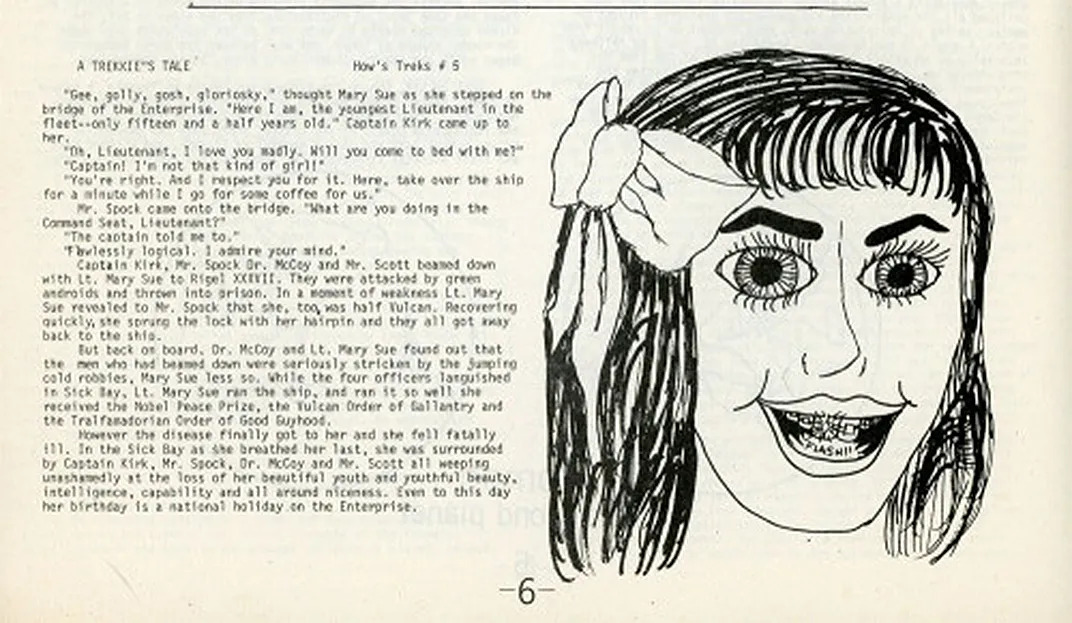If you have ventured deep into the trenches of fandom, you will have stumbled across the concept of an original character (OC): a character created by a fan and inserted into a fictional fandom world. For almost every fandom I have ever been obsessed with — no matter how briefly — I have dreamt up an OC and imagined their role in the storyline. Creating your own OC is a fascinating process in which you consider the many complexities of your fandom’s story, the intricacies of the character’s relationships, and ultimately how this entire person you’ve created will slot into this larger fictional puzzle.
However, as with most things on the internet, there is a divisive discourse surrounding the validity and worthiness of certain OCs in fandom spaces. Enter the Mary Sue.
She is beauty, she is grace. She is outrageously intelligent and adored by everyone who is blessed by her presence (and therefore, needs absolutely no character development because she’s already perfect). A Mary Sue is an OC who typically represents a female fan’s self-projection into the world of her favourite fandom. The term was first introduced in 1970s Star Trek fandom to describe the huge influx of young female self-insert fanfiction submitted to fanzine publications. This trope was so prevalent, in fact, that Star Trek fanzine editor Paula Smith created the first Mary Sue (literally, that was the character’s name) in an then-anonymously published satirical fanfiction of the youngest ever female commander aboard the starship, Enterprise. Such placeholder fantasies acted as a gateway for young fans, especially women, to see themselves as powerful characters in a fandom dominated by men. Though jokingly self-criticised, they were a vital aspect of women’s participation in fandom spaces.
Coinciding with the rise in female-led franchises like The Hunger Games and Twilight, the term Mary Sue gained traction as fandoms grew in online spaces throughout the 2000s and early 2010s. Yet what was once a term for a general self-insert fanfiction trope became a peculiarly gendered insult. This is the online fanspace that I grew up in, especially surrounding fandoms like Undertale, Steven Universe, and anime like My Hero Academia or Hetalia. Any female OC who was “too powerful” was, and often still is, seen as detrimental to the pride and respectability of her fandom. She is too quirky, too tragic, too beautiful. Strong femininity, in such excess, disrupts the norm, to the point where any mainstream female protagonist was accused of being a Mary Sue by male fans in often male-dominated fandoms. The exaggerated and one-dimensional Mary Sue also turned into their idea of what female fans want to see in stories.
Having grown up so deeply involved in the process of creating OCs, I have always felt put-off by the widespread disparaging of Mary Sues. There will always be pushback towards narratives attempting to centre a powerful young woman, whether fan-made or official. While terms for the “male” version of Mary Sues do exist, like Gary Stu or Marty Stu, they are seldom used because it has always been culturally acceptable for men to hold the default heroic role.
Though the history of the Mary Sue is tumultuous and tainted with hints of misogyny, modern fandom culture is beginning to understand the importance of Mary Sues (and by extension, all OCs). Mary Sues allow marginalised individuals to see themselves in often exclusionary narratives. Such characters have the power to help women — particularly women of colour — and LGBTQIA+ fans to carve their own space in fandom, too. When I create an OC, I see myself projected into my favourite TV shows or movies. Perhaps these characters are attempts to create a more confident and unbreakable version of myself, but any fan should be allowed to see parts of themselves in extraordinarily gifted characters. Instead of insulting Mary Sues, we should view them as wonderful expressions of a fan’s creativity and passion for the media they love and interact with, often on a daily basis.
My final message is this: to be a Mary Sue is to be free. Go forth and share your OCs with the fandom world.





